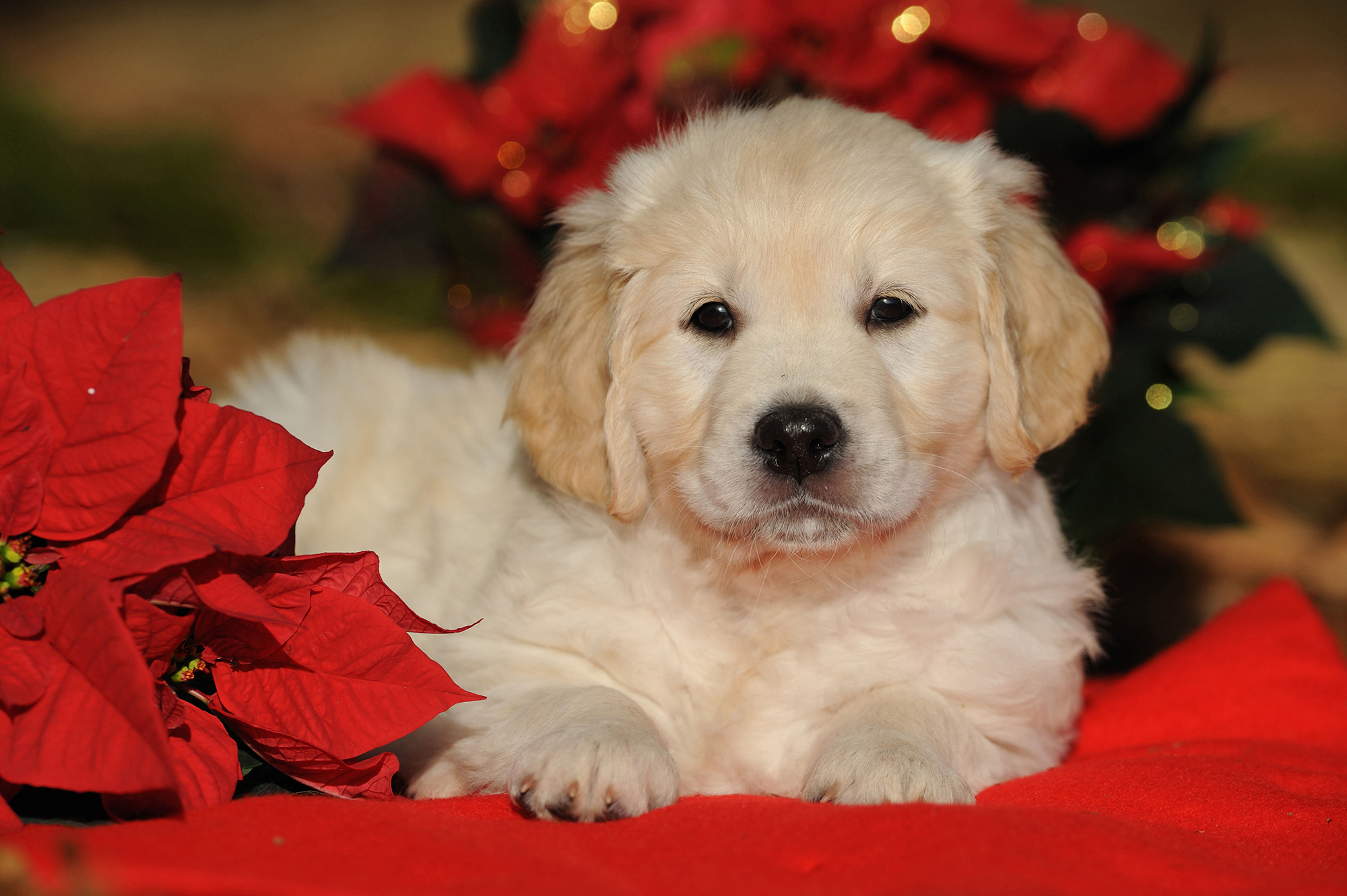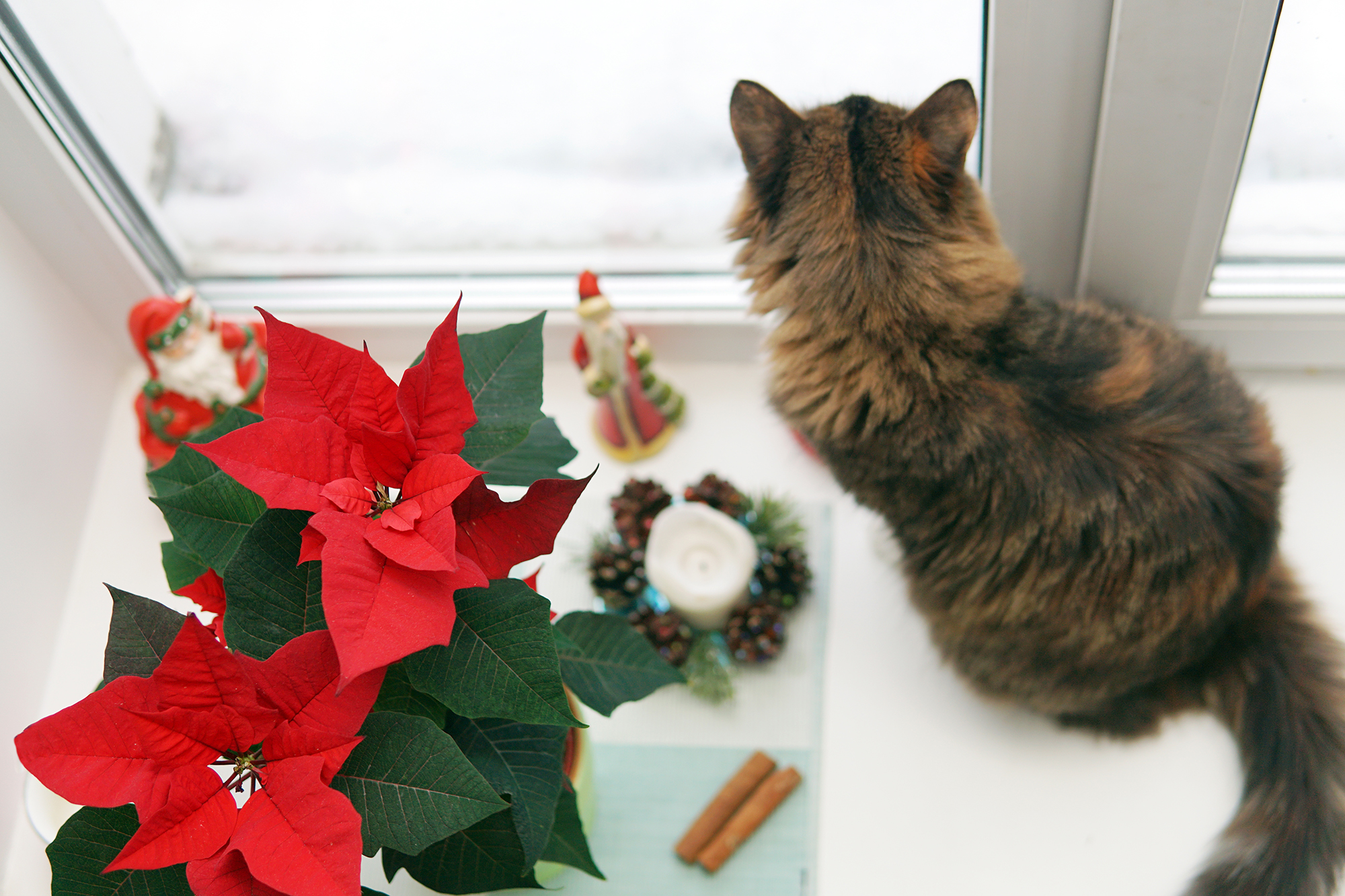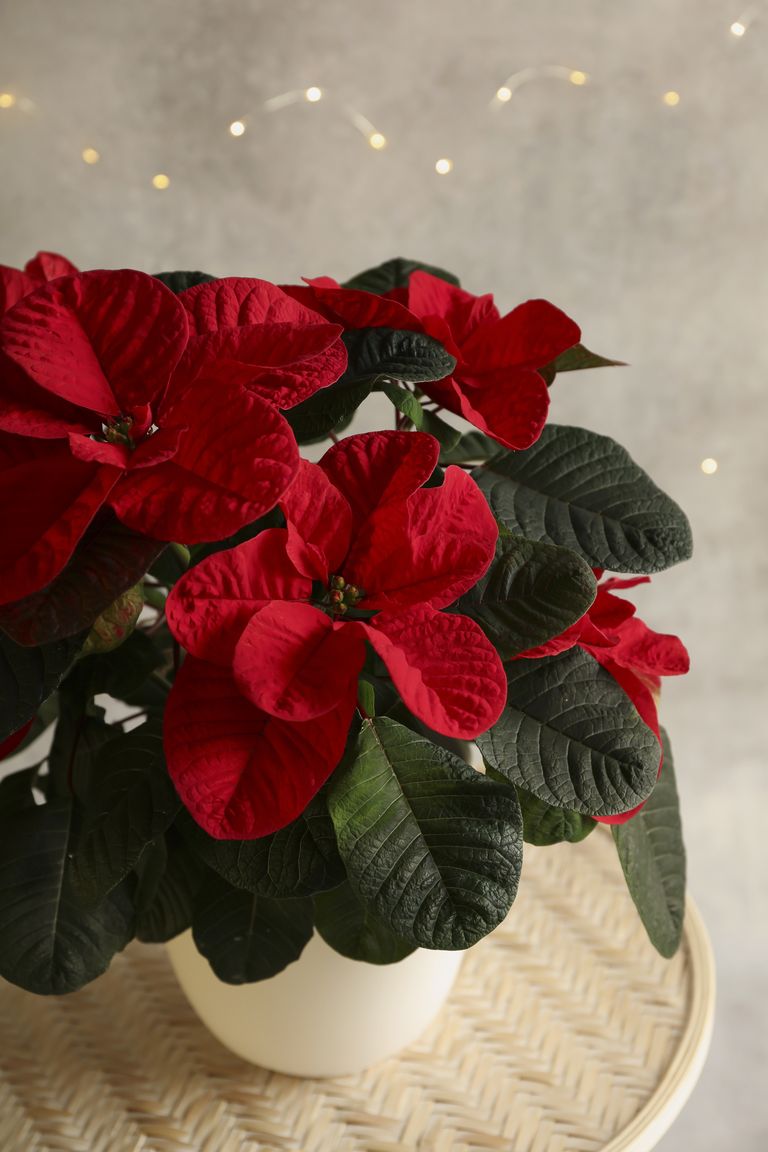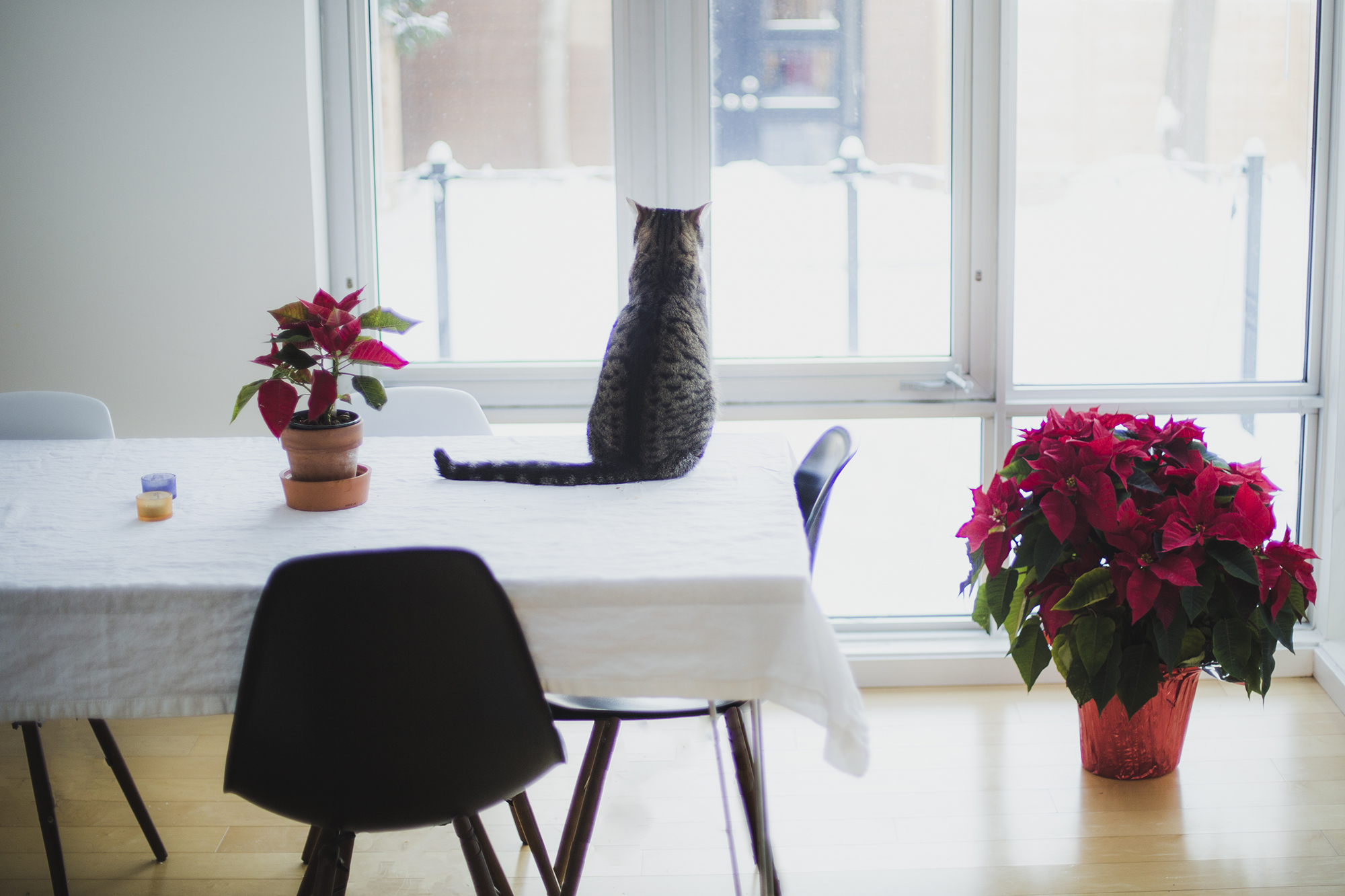Are poinsettias poisonous to cats and dogs?
Are poinsettias poisonous to cats and dogs? Experts settle the matter once and for all


Holly Reaney
Every year homeowners ask 'Are poinsettias poisonous to cats and dogs?' and often receive a range of responses that aren't definitive.
If you have pets and have recently bought a poinsettia or been gifted one, then you need to know the answer as to whether poinsettias are likely to cause harm to your beloved cats or dogs.
Caring for a poinsettia includes putting it in the right position, but in doing so, you need to know whether to keep them out of your pets' reach. Because the last thing you want is to gift or display this beautiful plant and risk it harming pets.
To get to the bottom of this problem, we have asked leading experts whether poinsettias are poisonous to cats and dogs and share their responses with you.

Are poinsettias poisonous to cats and dogs?
One of the best Christmas plants, poinsettias are an icon of the holiday season. They are often incorporated into Christmas decor ideas and are also popular gifts. But are they going to harm your pets?
‘No, poinsettias are not poisonous to cats, dogs or humans,' says Jim Faust, associate professor of floriculture physiology at Clemson University, South Carolina, who has been studying poinsettias for nearly four decades. 'I’ve eaten a few – they don’t taste great.'
On the whole, the expert consensus is that poinsettias are not poisonous to cats or dogs – or at least not to a concerning degree.
That sounds like good news for poinsettia lovers. But just to be certain, we also asked Gail Pabst from the National Garden Bureau, a leading authority on horticultural matters. ‘Many people still think that poinsettias are poisonous to cats, dogs, and people, but they are definitely not, as proven in many tests.'
However, while poinsettias are one of the best pet-friendly houseplants, if your cat or dog is partial to munching on plants then it's always wise to position them out of reach.
Now all you need to worry about choosing the best poinsettias for Christmas.

Can you have a poinsettia with a dog?
Yes, you can have a poinsettia with a dog. Poinsettias are not very poisonous and as such, there is no reason why you can't have a poinsettia with a dog. If your dog is often interested in your houseplants, however, it is worth positioning your poinsettia out of their reach to keep your plant save and minimize mess.

How poisonous is a poinsettia?
A poinsettia is not very poisonous at all.
'Although other members of the spurge family (Euphorbiaceae) have highly toxic sap, the poinsettia's own toxicity is quite mild,' says gardening expert Mick Lavelle.
'To put this in context, an average eight-year-old child would have to eat around 500 leaves to accumulate harmful levels of these toxins.'
When adding indoor plants to your home, it is always important that you check whether it is safe for your pets – for example 'are Christmas cactus poisonous to cats and dogs?'

What to do if a dog eats poinsettia?
If your dog or cat does eat poinsettia, it is unlikely to do them any severe harm. However, keep an eye on them, and if you notice any symptoms contact your vet immediately.
Founder of Houseplant Authority Naomi Robinson warns that ingesting poinsettias may cause mild side effects to some pets.
'Poinsettias are slightly toxic to cats and dogs, so if your pet ingests some of this plant, you may see some effects such as drooling, vomiting, or diarrhea,' she says.
‘Their milky sap can also lead to some irritation if it touches your pet's skin or eyes. But given that the effects of ingestion or exposure are usually not severe, it's rare for your cat or dog to require a visit to the vet unless these issues persist.’
Sign up to the Homes & Gardens newsletter
Design expertise in your inbox – from inspiring decorating ideas and beautiful celebrity homes to practical gardening advice and shopping round-ups.

Melanie has worked in homes and gardens media for two decades. Having previously served as Editor on Period Living magazine, and worked on Homes & Gardens, Gardening Etc, Real Homes, and Homebuilding & Renovating, she is now focusing on her passion for gardening as a Senior Editor at Gardening Know How. As a keen home grower, Melanie has experimented with pretty much every type of vegetable at some point – with mixed results. Often it is the simplest things that elude you, which may explain why she just can't seem to master zucchinis.
- Holly ReaneyContent Editor and Sub-editor
-
 Kelly Ripa and Mark Consuelos's dining room shelves combine unexpected elements for the ultimate storage solution – it's multi-functional and replicable
Kelly Ripa and Mark Consuelos's dining room shelves combine unexpected elements for the ultimate storage solution – it's multi-functional and replicableGreen shelves in Kelly Ripa and Mark Consuelos' dining room cleverly combine storage to accomplish separate purposes in a pretty way
By Sophie Edwards Published
-
 I'm a Sleep Editor – these are the 7 mattress features I think are gimmicks and not worth the spend
I'm a Sleep Editor – these are the 7 mattress features I think are gimmicks and not worth the spendIn my search to find the world's best mattress, I've come across some duds − learn from my mistakes and avoid these mattress gimmicks
By Emilia Hitching Published